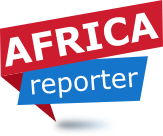[ad_1]
EUROPEAN Union ambassador to Namibia Sinikka Antila says their 27 member states want African countries to be part of the United Nations Security Council.
Antila revealed this during her courtesy visit to president Hage Geingob last Friday morning, as they prepare to sign an agreement in November, based on the EU’s need for critical raw materials and Namibia’s green hydrogen aspirations.
“Let’s hope one day we will find that way… We support the reform of the security council to have the voice of Africa. It is very important,” Anitla told Geingob.
Their support comes a few weeks after Geingob’s speech at the United Nations General Assembly (UNGA), where he pleaded for Africa to be part of the security council.
The council is composed of 15 members, with five permanent members: China, France, the Russian Federation, the United Kingdom, and the United States, as well as 10 non-permanent members elected for two-year terms by the UNGA.
“They do not consult us before [they go to war] but they want us to vote. How do we just jump up and support you? We are left out but our vote is also too small,” Geingob told Antila on the exclusion.
Geingob said the current Ukraine-Russia conflict “is not a world war but a European war” and that the member countries have double standards.
On 24 February 2022, Russia invaded Ukraine, which led to almost 30 000 deaths and displaced 14 million people, including Namibian students who are yet to complete their studies.
The president said in this instance of the conflict, diplomacy has failed.
“People can talk but they have double standards. When diplomacy fails people go to war. That’s the problem. People are suffering,” he said.
Geingob said the two countries should meet in order to resolve the conflict.
“The only way is to meet and not to instigate with weapons,” Geingob said.
The EU has continued to support Ukraine with military assistance in the form of a ‘security compact’; security assurances that respond to scenarios of Russian escalation; economic support, giving Ukraine access to the EU’s single market; and help to secure Ukraine’s energy supply.
Geingob said: “Let’s address the veto question but they do not want to do that. How can Africa be left out?”
The ambassador responded: “Exactly.”
The conflict in Eastern Europe has left the EU and Britain with energy insecurity as they sourced 40% of their gas from Russia.
Russia is actively manipulating their energy market and as a result, gas prices have risen more than 10 times compared to before the pandemic.
This has forced the EU to look for alternative means of gas, which enabled the current partnership on critical raw materials and green hydrogen.
President Geingob and president of the European Commission, Ursula von der Leyen, are set to sign the agreements at the 2022 United Nations Climate Change Conference (Cop27) in Egypt next month.
The agreement will centre around value chains of sustainable critical raw materials and renewable hydrogen.
Antila and Geingob’s visit comes weeks after the EU and Namibia concluded their political dialogue in areas of cooperation.
[ad_2]
Source link




